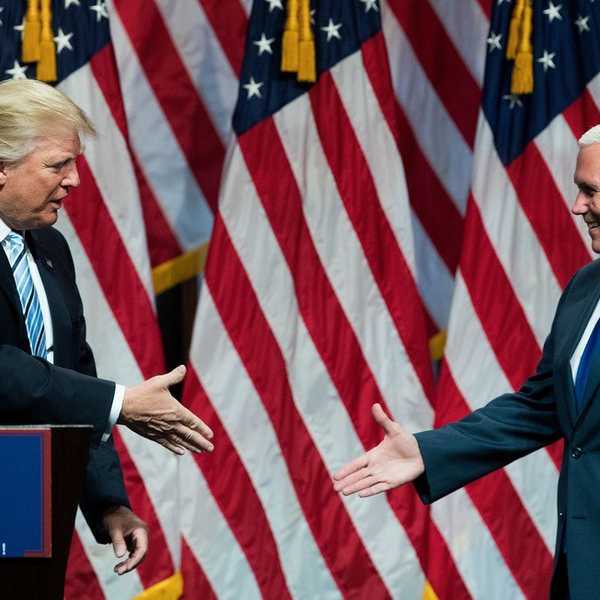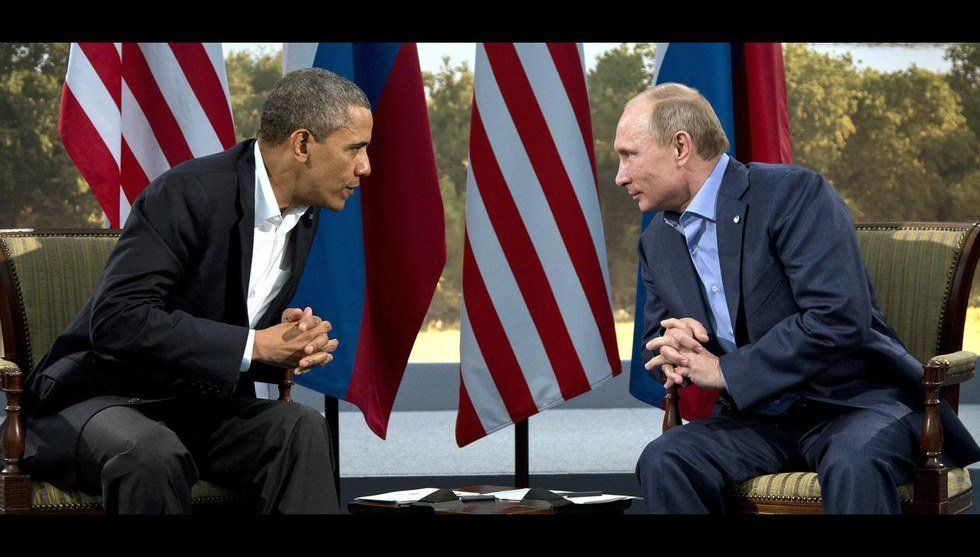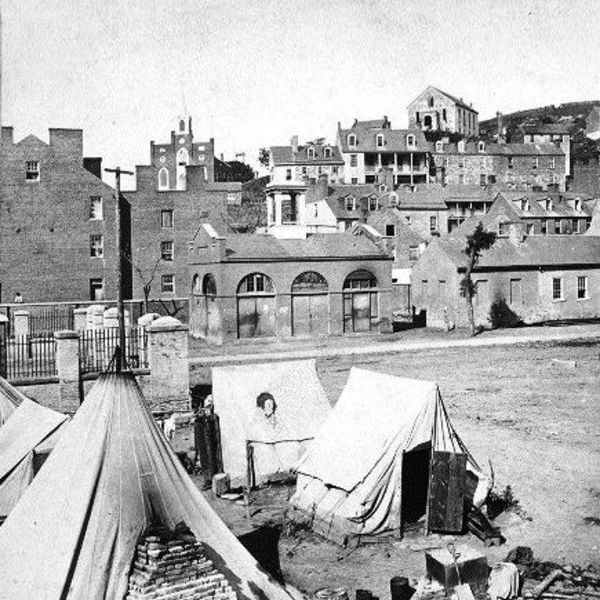“The demise of the Soviet Union was the greatest geopolitical catastrophe of the century,” said Vladimir Putin in an al 2005 state of the nation address. “As for the Russian people, it became a genuine tragedy. Tens of millions of our fellow citizens and countrymen found themselves beyond the fringes of Russian territory,” he later added.
There’s no doubt: Vladimir Putin is portrayed as a powerful and cunning figure in Western media. Despite these damning attributes attached to Putin’s international image, there is little that can be done to deter the support of the Russian people and importantly – the Russian media.
According to Julie Hemment, a newly published author and Associate Professor of Anthropology at the University of Massachusetts, the state-owned Russian media undoubtedly promotes Putin’s political career and position as a two-term president over an eleven-year span.
“He (Putin) plays very effectively to domestic audiences, so looking strong on an international field is just a product of a successful recipe,” says Hemment.
When it comes to his effectiveness in the Russian media, Putin has nearly the entire country wrapped around his finger. Although American presidents are under much more intense scrutiny from free press, Putin has mastered the art of giving plausible public statements that nearly always satisfy Russian voters – and leave Westerners perplexed.
A somewhat polished version of former U.S. President George W. Bush, Putin makes his decisions with the help of what some call the “collective Putin,” a group of officials who advise him, notably during major geopolitical decisions.
Recent answers made by Putin when he addressed the Eastern Economic forum harken back to Bush-era White House press tactics. At a meeting of mostly oil and gas workers, Putin responded to questions surrounding Russian homeland security. Topics included the refugee crisis, counterterrorism efforts, and the Ukraine situation.
Putin responded to one question asking as to how he will handle the Syrian refugee crisis. He gave a response that carefully criticized the entire European Union and subsequently, the United States. This was a similar rhetoric used by President Bush in 2003, maligning the Iraqi government under the accusation of possessing a weapon of mass destruction. Of course, this was an extension of the U.S. invasion of Afghanistan in 2001 to find Osama bin Laden, the puppeteer behind the 9/11 attacks.
“I am surprised to see certain American media outlets criticizing Europe for its excessively tough...attitude to migrants,” Putin answered. “The United States does not have to deal with such a flow of migrants, while Europe, after it blindly followed instructions from America, is now bearing the brunt of the crisis.”
As a high-ranking KGB official during the entirety of the Soviet-Afghan War, Putin has credibility as an authority on counterterrorism; he has made a point of preventing acts of terror in southern Russia during his tenure as president.
Putin was appointed head of the Federal Security Service soon after the Soviet Union and KGB’s collapse in 1991, where he held a position as lieutenant colonel. After a short tenure as Presidential Chief of Staff, Putin was chosen as a deputy prime minister in 1999. On the same day, Putin was chosen by President Boris Yeltsin to be acting prime minister. When Yeltsin stepped down amid controversy in early 2000, Putin was thrusted into power as the second elected president of post-Soviet Russia.
Like Putin, Obama became president after about a decade-long political career. On the contrary, Obama was voted into power during a time that he fit as the perfect candidate. After close to eight years of war in the Middle East, American citizens were desperate for a civil solution to increasing unemployment and increasing debt.
Unfortunately, Obama’s “Change” slogan has not rung true to as many Americans as it did in 2008. Putin assumed power during an early time of change in post-Soviet Russia, with a chance to prove he could be a trustworthy leader after Yeltsin’s resignation.
While Obama was able to swing younger undecided voters during his first election, he does not have nearly the same level of support as 2008. July 2015 approval ratings show that Obama’s is currently around 48%, while Putin holds 87% of popular support.
Sure, President Obama can appeal to voters who are liberal on social rights issues. Recently, he has demonstrated his support for the elimination of minimum sentences for minor drug offenders with the Justice Department set to release 6000 inmates serving nonviolent drug charges. Unfortunately, American public opinion is still surprisingly split on this issue by party politics.
Prof. Hemment’s new book, Youth Politics in Russia: Producing Patriots and Entrepreneurs. is in part a product of her observations from 2006-2001 at a government-sponsored Nashi youth camp in the Tver Region of Russia, called the Seliger forum.
The rise of the Nashi, or the Nationalists, provides a clear example of the young “entrepreneurs” and “patriots” providing domestic legitimacy to the Putin administration. Slogans such as “commodify your talent” harken back to Soviet-era themes.
Issues such as drug and alcohol abuse are prevalent in Russia, as they are in the U.S. During a reading of her new book at the University of Massachusetts, Hemment quoted a number of youth members at the Seliger forum-camps. Some developed ideas carried out through video projects with themes like the “fear of a lack of civic duties” among average young citizens who choose to “get high” and succumb to western ideologies.
Western media has negatively portrayed these young men and women in light of evidence of a “new Cold War” era. One example of the increasingly problematic nationalist groups in Russia include the gangs that are “meddling in Russian space” in the words Hemment. Recent news of Russian youth extremism that has made its way to American media includes video evidence of the harassment of homosexual men in public spaces.
Another movement that is popular in America through Youtube includes the “Stop a Douchebag” program. To combat the problem of drivers using sidewalks as shortcuts during traffic jams, members stand in front of, push against, and lie on vehicles that refuse to turn around when asked.
If the driver still resists, stickers are liberally applied to the windshield of the vehicle that are large and difficult-to-peel, bearing something along the lines of “I don’t care for anyone else, I drive where I please”.
Most drivers violating traffic laws have responded with threats, some brandishing firearms. The group won four million rubles in 2013 during a contest for an NGO presidential grant, receiving six million in 2014. NGOs are organizations that must register with the government as “foreign agents” if they receive any foreign funding or support.
Concurrently, Obama’s rhetoric for addressing important domestic issues seems more like an overwhelmed plea for action rather than a resolved plan for social change. This is clearly evident in his relatively poor level of domestic support and his inability to serve as a truly admirable political model for his nation’s youth.
Recent American history - three wars in the past 20 years, a series of unproductive Congresses, and a severe recession - has put a damper on true patriotism among the youth in the United States.
Hamment believes that Russia’s control of the media has been “pretty much complete” in the past two years and has greatly contributed to Russia’s vilification of Obama among its nation’s citizens.
“It’s a completely unambiguous anti-American line and Obama is demonized for being weak,” she says. “Whenever we (the American public) might not like about what he (Putin) is doing, it’s working back home in Russia. That’s the irony in the situation between the two.”





















